Oh, Please! It’s not even Halloween! Fashion Valley decks the mall with mounds of folly—fa, la, la, la, la, la, la, la, la! You won’t forget to spend your money—fa, la, la, la, la, la, […]
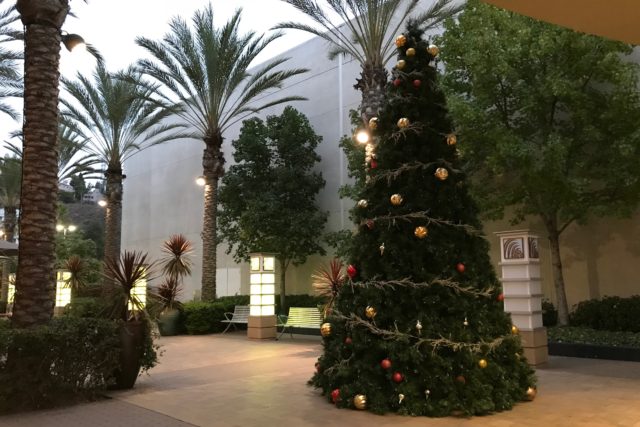

Oh, Please! It’s not even Halloween! Fashion Valley decks the mall with mounds of folly—fa, la, la, la, la, la, la, la, la! You won’t forget to spend your money—fa, la, la, la, la, la, […]

Until San Diego Comic-Con 2017, I took attendance for granted. From 2009-14, I obtained a (deserved) press pass, and when later it wasn’t reverified, I luckily bought full-event passes for 2015 and 2016. But this year my luck ran out during early and open registrations—as it did this morning for next summer’s Con. One other opportunity will come next Spring.
Unexpectedly, Saturday of SDCC 2017, I was able to obtain a legit pass for Day Four—not to explain how. I knew one benefit could be opportunity to participate in 2018 advance registration, as I did this morning. Last year, the session ended with my disappointment. Today, I feel grateful to have participated at all.
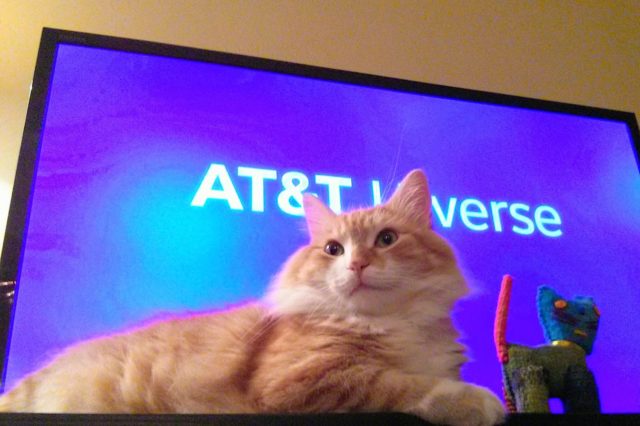
Yesterday, as part of third quarterly earnings, AT&T reported losing 385,000 traditional TV service subscribers—134,000 of them from U-verse. When the company later announces Q4 results, I will be among the next group of losses; for unexpected reason.
One week ago, I lamented giving up U-verse, after being an early adopter (February 2008) and long-time subscriber. Now my mood is “good riddance” and “please let the door swat you in the ass on the way out”. I have rarely seen such horrendous customer service, and if it’s typical, AT&T’s attrition-rate may be more about corporate culture than competition or cord-cutting.

What a difference branding makes for sale-pricing. Before LaCroix became a posh, bubbly brand for environmentally-minded, organic-obsessed, uncompromising-to-spend-less Whole Foods sundry shoppers, my wife and I regularly purchased the seltzer. We preferred the no-flavor water for its effervescence and low-sodium content. I remember when, going back just five years, the local Ralph’s sold cases of 24 12-oz cans for $4.99 during summer months.
But now that LaCroix is the Apple of bubbly waters, those cans cost lots more. Today, in the same Ralph’s the exact quantity deeply discounted is twice as much—and that’s helluva savings when one case of eight typically sells for what I used to pay for 24.
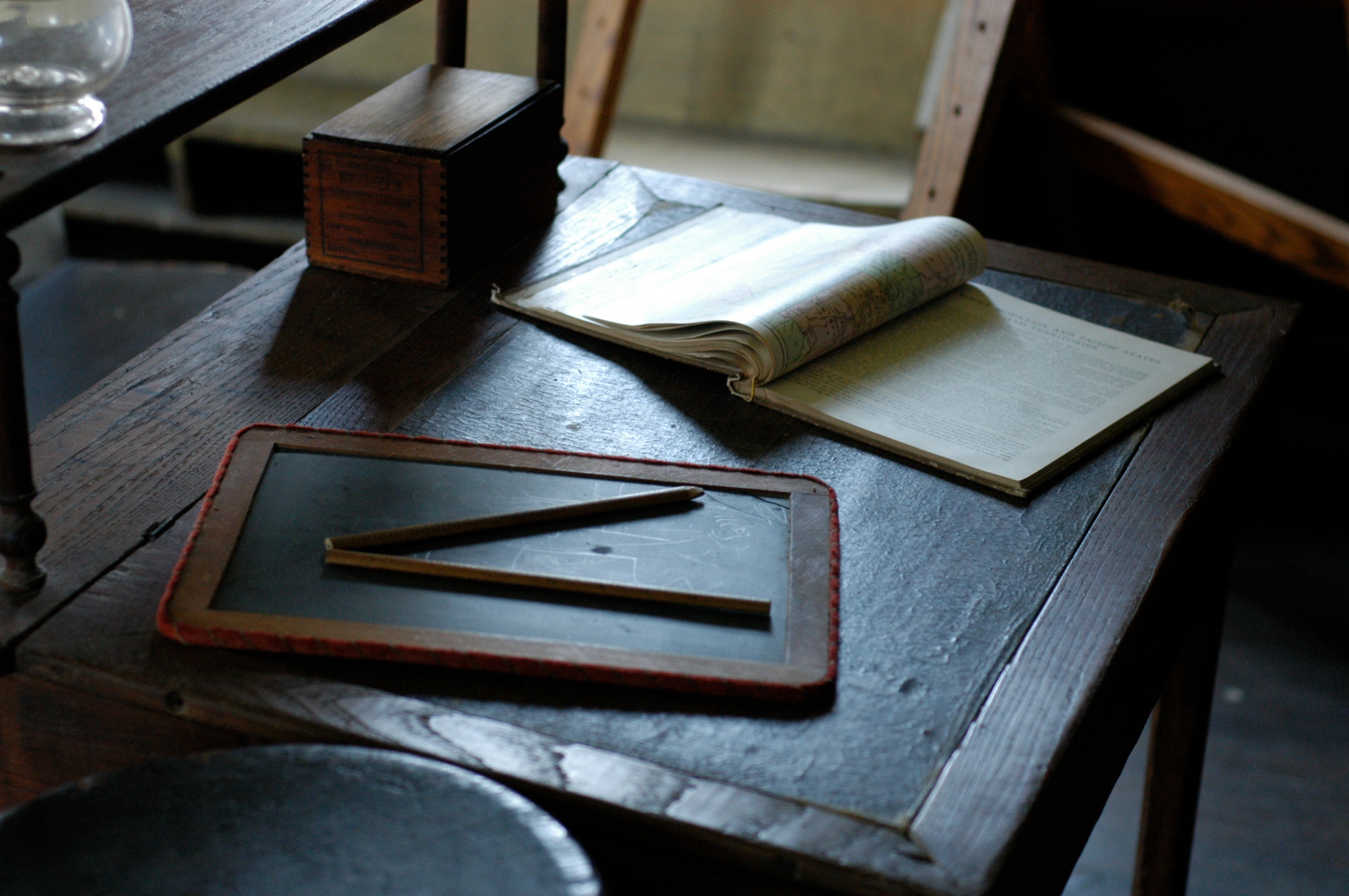
On Oct. 15, 2007, our family of three relocated to San Diego from the metro-Washington, D.C. area. Looking back at my blog posts from a decade ago, I see very little writing about the move and regret not recording the poignant personal history. It’s not a mistake to be repeated. My wife and I will soon change residences—and while the move is nowhere near as dramatic as the last, this missive you read begins the chronicle of our next adventure.
Strangely, or not, the decision to leave the current apartment is fallout from our failed home-buying effort—for the property we call the Schoolhouse (and affectionately, at one time). Anne and I learned enough to know that we aren’t ready to own, certainly not in overly-priced Southern California. As such, staying put for another year looked likeliest option; we have, or had, until October 20 to sign another year’s lease for our second-floor rental of 10 years.
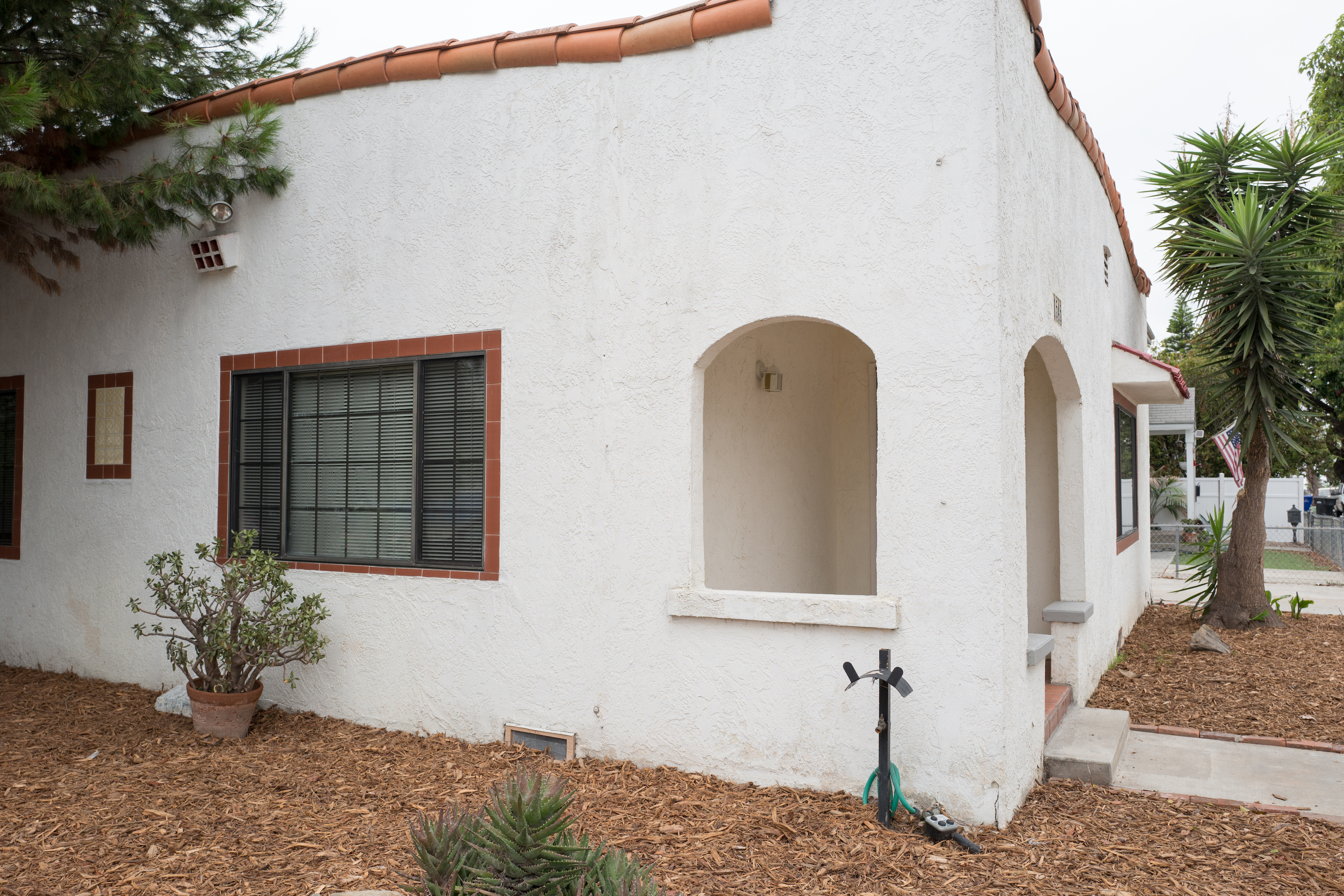
Aug. 18, 2017. I travel back to San Diego after visiting my niece in Long Beach. Meanwhile, two blocks from our apartment, my wife attends an Open House for a cute, Spanish-style property listed for $586,000. Anne tells the seller’s real estate agent that we can’t afford to buy the place—an effective diversionary tactic. But the 900-square-footer is within our means, and we will nearly come to own it.
This is my story of wanting and walking away. I take with me disheartening lessons about the home real estate market.
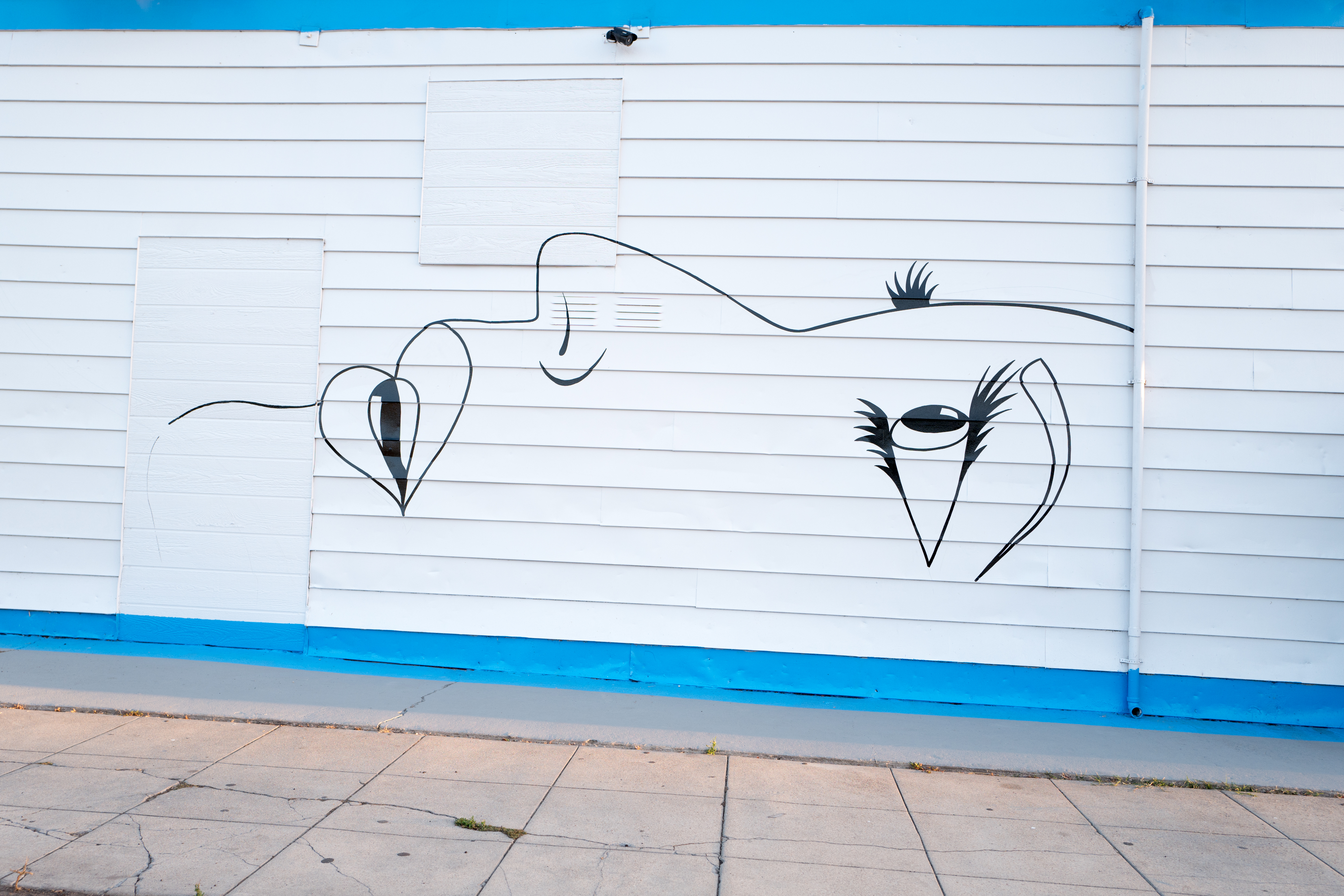
Here in University Heights, at the corner of Cleveland and Meade Avenues, is American Market. Next month, the Wilcox family celebrates 10 years living in the neighborhood, and the one-stop shop has been a fixture […]

Fruit trees are among the signature characteristics of San Diego’s University Heights neighborhood. You see them—particularly the citrus varieties—on the front lawns of many homes. Too often, ripening trees appear to be neglected, bearing plentiful, but rotting, delights. That said, some people gladly share, by setting out their bounty for the taking—like this line of lemons that I saw late yesterday afternoon along Maryland Ave.
Because I recklessly left Leica Q at home, the Featured Image and its companion were captured using iPhone 7 Plus. Vitals for the first: f/1.8, ISO 25, 1/60 sec, 3.99mm; 5:31 p.m. PDT. The other is same, except for 1/40 sec shutter speed and 5:32 p.m. timestamp.
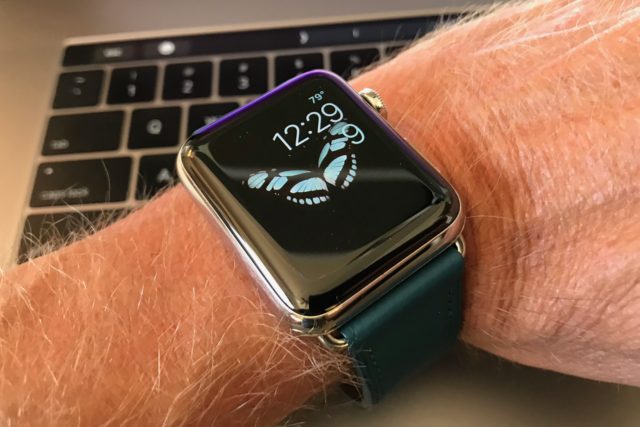
How embarrassing is this? Few hours ago, I exercised with my wife—and I was in pushup position, which brought the top of my hand in frequent, forceful contact with Apple Watch crown and button. Suddenly, […]

Yesterday afternoon, I walked 1.6 km (1 mile) from the Greyhound depot to the McDonald’s nearby San Diego High School, where my daughter graduated five years ago; my legs needed movement after being too long motionless during the three-hour ride from Long Beach. I had made an overnight-trip to see my niece Lynnae, who was on the West Coast for business.
Soon after the bus exited Interstate 5, I saw the extent of the city’s homeless crisis for the first time. Tents lined several blocks (at least) along what may have been National Avenue. According to the San Diego Regional Task Force on the Homeless, the number of homeless people living unsheltered has increased 41 percent since 2014. There are 937 (recorded) tents, up 58 percent year over year. Data is current as of July.
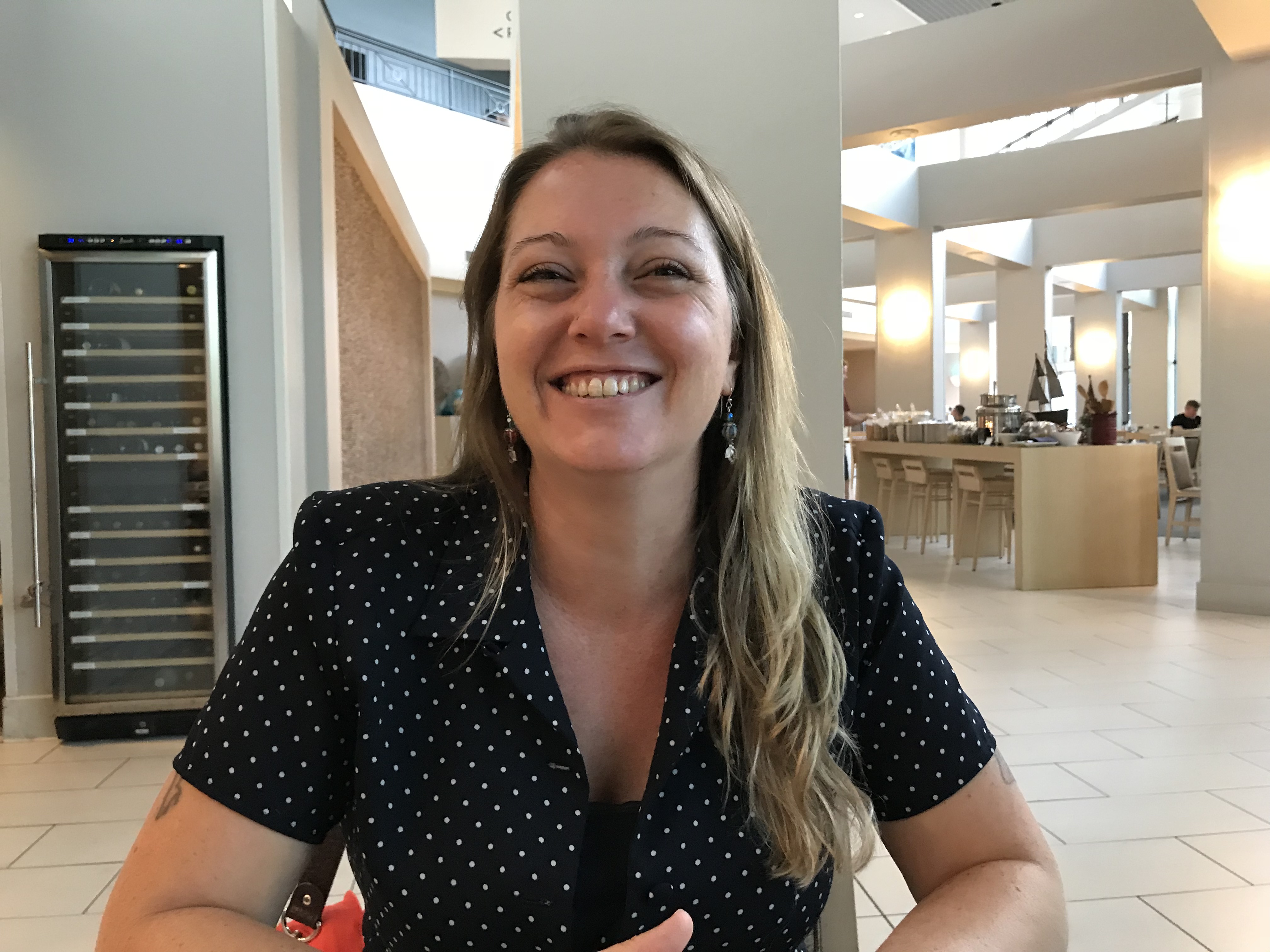
My niece, Lynnae, is in Long Beach—her first trip to California and the West Coast. We visited last evening and breakfasted this morning, when I used iPhone 7 Plus to capture a portrait. Her family lives on a 7-acre “homestead” in Vermont, where she works part-time for a local company but also operates her own small business—making (and selling) fresh, natural cosmetics from her own recipes; eh, formulas.
Lynnae’s energy, geniality, and clarity are irresistibly endearing. She’s a social butterfly, too. After looking around the Hyatt for a place to eat, and finding nothing appealing to either of us, I suggested dining at the hotel. About an hour earlier, Lynnae told me about trying to beat back jet lag the previous night, her first; she snacked and sipped at the restaurant pub. Ha! The woman makes friends easily. She could have been a regular for years judging from the hand waves and by-name greetings received as we walked in together.
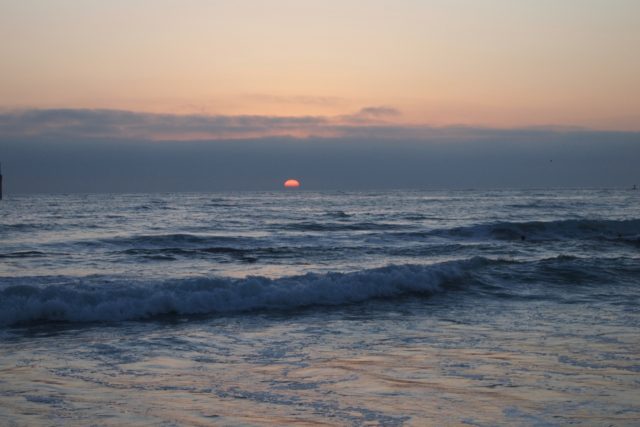
The world is full of narcissists, who gain popularity by self-broadcasting themselves, boasting their own accomplishments, and in process taking praise or gaining glory. They are false. Ingenuine. There is another type of character—someone who naturally gives, asks for nothing in return, and (often too rarely) is well-regarded for their generosity. They are true charmers in the sense self-proclaimers pretend to be.
My mom, who passed away today, Aug. 5, 2017, was social through grace and a kind of innate likability. She was short in stature—adult height of four feet, ten-and-a-half inches—but tall in presence. In any room, she easily became the sun around which all present orbited. I often marveled at how people just gravitated to the small woman without any seeming effort on her part, other than flowing friendliness and generosity. Her buoyant, positive spirit, supported by unstoppable, advocating determination, made mom the person others wanted to be with—and to be like. She was authentic. Genuine.